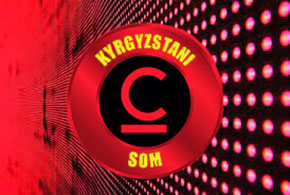The EAEU Prepares For A Unified Digital Financial Market
Preparations have begun to introduce Digital Currencies into sovereign use
The demand for online solutions in the Eurasian economy has significantly increased, reducing the use of cash and accelerating the formation of a regional digital economy that will have impact beyond the Eurasian Economic Union’s (EAEU) borders. This trend is relevant for the countries of the EAEU, which include Armenia, Belarus, Kazakhstan, Kyrgyzstan, and Russia. It is interesting to note that China, Vietnam, and Serbia all have FTA with the EAEU, whose multilateral trade partnerships are also expanding with the Middle East and across Asia. But to what extent are the EAEU Central banks involved in the process of developing national digital currencies and how will these efforts correlate with the goal of creating a single financial market?
By 2025, the EAEU member states intend to create a common financial market designed to overcome the financial and resource deficit. The members of the Union want to form common rules of the game in the insurance, banking, and exchange sectors, since they are not immune from large-scale global changes in the field of payments and settlements.
The EAEU member countries are at different stages of development of digital currencies, and each of them acts independently. In this article we discuss the three Central Asian members.
Russia

The Russian Central Bank presented the Digital Ruble project for the first time in 2020, and a year later launched a prototype digital currency platform. In fact, the digital Ruble is an additional form of national currency that will be issued by the Central Bank.
The first phase of pilot testing took place during 2022. Thirteen Russian banks joined in, imitating the opening of digital wallets for banks and citizens, as well as transfers between individuals and from individuals to businesses. The second phase of testing will last until the end of 2023. Another nineteen banks have now joined, testing real operations and connecting intermediaries in the form of exchanges, brokers and insurance companies.
According to the Central Bank, operations with the real digital Ruble will begin immediately after the creation of the legislative framework. In the future, offline mode testing, development of protocols for cross-border transactions, exchange of the digital Ruble for foreign currency and the possibility of opening wallets for non-resident clients are to be carried out.
Kazakhstan

The pilot Digital Tenge project was launched in 2021 by the National Bank of Kazakhstan with the participation of international partners and an expert community. The results of the project confirmed the feasibility of the initiative, and in 2022, the National Bank continued to study the benefits and costs of introducing the digital Tenge. Work has been carried out to expand the functionality of the platform and quantitative economic research. The preparation of the digital Tenge platform is carried out by the Centre for the Development of Payment and Financial Technologies, a subsidiary of the National Bank of Kazakhstan.
In accordance with the road map of the National Bank, for 2023–2024. it is planned to pilot and launch a digital Tenge platform within Kazakhstan (social payments, public procurement), the development of cross-border payments, and by 2025 it is planned to scale developments adding new participants and services, participating in integration processes with partners.
Kyrgyzstan

The concept of the Digital Som was presented by the National Bank of Kyrgyzstan in 2022 and consists of nine chapters. The Concept states that the digital Som is an additional form of national currency that will be issued by the National Bank and be its obligation. The digital Som will combine the properties of both cash and non-cash som.
The role of digital currency in the financial system is determined, and the advantages and risks of introducing digital Som have been analysed. The Concept notes that the introduction of the digital Som into circulation will strengthen the financial system of the country, while its use is provided primarily for domestic, and later for cross-border payments. Four years are allotted for the implementation of the project, and a decision on the introduction of digital Som expected to be made at the end of 2025.
The initial dynamics of the development of projects to explore the possibilities of digital currencies indicate that they have significant potential. According to Mikhail Krivoguz, an Economic Scientist with the Russian International Affairs Council, the EAEU member states should create digital currencies on a single platform, and develop comparable technical and regulatory standards. This will allow cross-border financial transactions to be carried out directly, without using the US controlled SWIFT network, which remains especially important in the context of Western sanctions.
Should things develop as planned, then the use of Digital Currencies in Russia and Central Asia is likely to become commonplace by 2027. This will affect the regions trade with China, which is also rolling out a Digital Yuan, as well as numerous other currency initiatives being independently developed with many of the EAEU’s trade partners. This will lower the effectiveness of Western sanctions and further reduce the economic intelligence that the United States and collective West obtain from their monitoring of SWIFT network transactions.
Source AsiaIs
Related Reading





